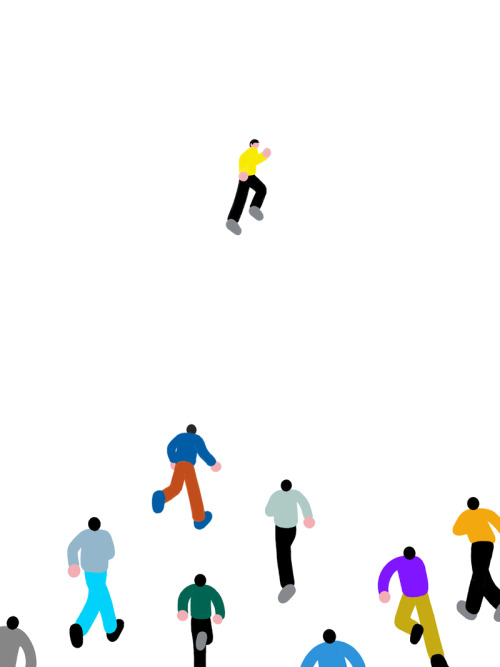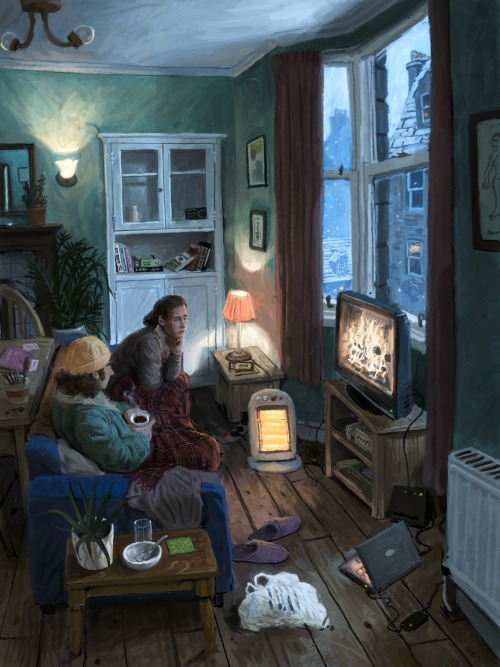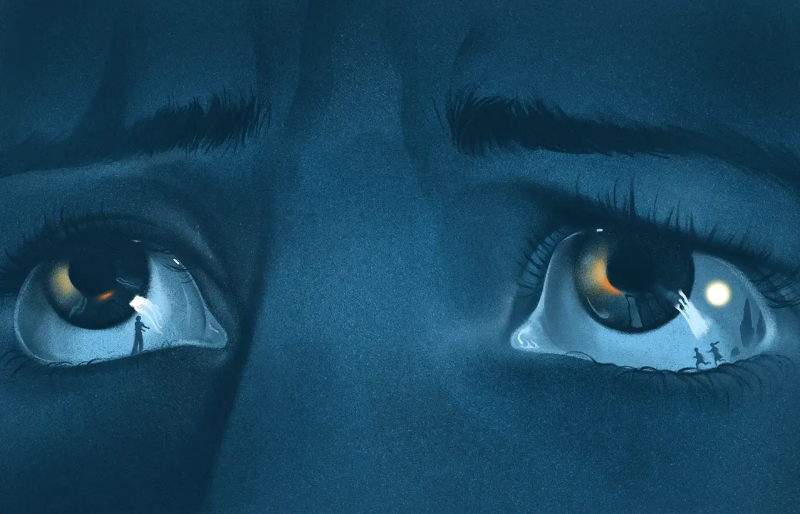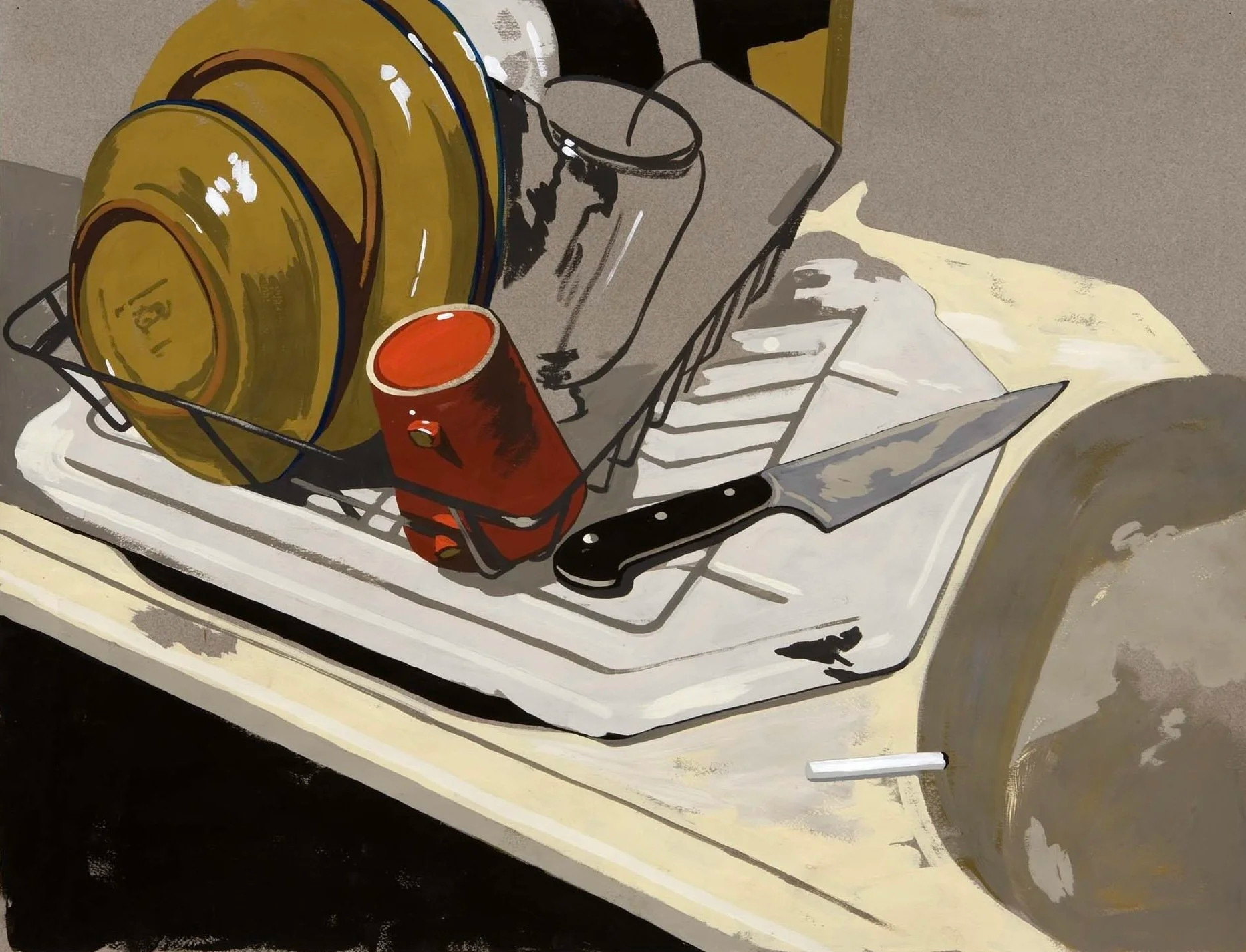A PLEASING ELECTORAL RESULT IN THE UK! A bloody nose for the Government, a victory for progressive, left-wing politics and no victory for the racist crew! AND the Tories got properly humiliated TRULY, WE ARE BLESSED! Let’s not think too hard about what this might translate to nationally, or how this morning’s rhetoric already seems to suggest that the racists are preparing to tack even further towards full-fash – let’s just momentarily enjoy what looks like Actual Good News!
On a personal level, my week has mainly consisted of being threatened with legal action – well, technically one of my employers, but it *feels* personal – and of being reminded why I hate so much of advermarketingpr. Want to hear a small anecdote? OF COURSE YOU DO! I was this week forwarded a LinkedIn post penned by a former colleague of mine (who was always very keen on telling people what a great university they went to, by the by) who now works at a Large Streaming Company. Said post was several hundred words long, had all the telltale hallmarks of AI-generated LinkedInbait, down to the braindamaged emoji use, and was a ‘celebration’ of how said company had (and I am not making this up) changed the thumbnail image on one of its playlists to something vaguely-zeitgeisty as a piece of CREATIVE COMMUNICATIONS. I read the post, and I read it again, and slowly the realisation dawned on me that what this person was bragging about was the fact that SIX named people, plus an agency, collaborated to ensure that an image of a toy monkey was used to accompany an already-existing playlist that is already being algorithmically pushed to millions of people, and that this was somehow great work that deserved to be celebrated for its impact. SIX PEOPLE PLUS AN AGENCY TO PUT AN IMAGE OF A MONKEY ON A WEBSITE. We all deserve to die (or, at the very least, lots of us deserve to lose our ‘jobs’ because, honestly, this is no way to live).
Anyway, that’s enough of me, you want the links and links you shall have. Oh, you should probably know that I will be off next Friday due to the fact that I have a few days of Actual, Quite Full-Time Work to do next week and as such won’t have time to read all of the internet – don’t worry, though, I will be back before you know it (and, in all likelihood, before you want it), and it’s not like there aren’t threehundredfcukingmillion other newsletters you can read in my absence, so I figure you’ll cope.
I am still Matt, this is still Web Curios, and you might cope but HOW WILL I?

By Jake Kennedy
KICK OFF CURIOS WITH THIS MIX OF 70s (I THINK) PSYCHEDELIA AND ASSORTED RARITIES, MIXED BY EDAN!
THE SECTION WHICH IS QUITE TEMPTED TO SPEND THE NEXT FEW HOURS LAUGHING AT MATT GOODWIN’S SAD DEFEAT FACE, PT.1:
- Rename the World: Have you ever thought that the place where you live could do with a rebrand? That the traditional name given to your area or neighbourhood, whilst historic and, you know, broadly-useful, doesn’t quite communicate the quiddity of the whole, and that, given access to all of the maps and a big marker pen, you could come up with something more appropriate, more…evocative, somehow? REJOICE, THEN, FOR NOW YOU CAN! Rename (the) World (the ‘the’ is implied) is a website where anyone can apply a NEW NAME to anywhere they like on the world map, thereby turning placenames into something far more fun and generally vibes-y – this isn’t the first tool like this I’ve seen, but I am a sucker for this sort of collaborative endeavour and anything that helps expose the weird, mad prejudices and obsessions people have with specific geographies (don’t worry, though, it appears to be remarkably free of hatespeech – er, please keep it that way). Basically anyone can rename any point on the map with anything they like (although I presume someone somewhere is modding this lightly, because, well, it’s the web), which means that you get to see your city as a tapestry of local beefs and nicknames and in-jokes and OH GOD THIS IS SO GOOD. The area near me with all the gay sex clubs is now called ‘fisting’n’meth’, apparently, Marylebone has become ‘obvious pronunciation trap for tourists’, and somewhere in Central London has mysteriously been designated ‘the pigeon factory’. Somewhere up around N22 is now simply known as ‘Lads, It’s Tottenham’. I can’t tell you what a joy this is – click in, find your local area and ENJOY (and leave your own marks! Recast the city in your imagine! LET US REDRAW THE MAPS AND RECLAIM THE TERRITORY! Ooh, I have ‘positive byelection result optimism’, turns out, whodathunkit? Oh, I just checked and the Vatican has been renamed ‘American Theocratic Gerontocracy’ – honestly, I could not love this website any more.
- AI Scott Adams: While most of the world has happily forgotten the existence of Scott Adams, creator of Dilbert and increasingly-unhinged and racist lunatic operating on the very fringes of the web, there are some who continue to, er, mourn his memory and celebrate his ‘legacy’ – as part of that, and as a result of a throwaway comment by Adams on a livestream a while back about how he wouldn’t mind if someone digisockpuppeted an avatar of him after his demise (short point of order – probably quite a good idea to NEVER put something like this out there, even in jest; WHAT A WORLD!), someone has seen fit to create a posthumous AI revenant of the man which now exists as a bot on X. AND LO! The link – sadly to The Bad Platform, sorry about that – takes you to the profile of the AI Scott Adams bot, which every day posts another video (these things are…not short, we’re talking 20 mins or so of AI-generated avatarchat), in which a digitally-generated racist opines on the issues of the day; the model is based on him doing a videopodcast, so presents as a man and a mic in a home studio, and…yeah, it’s quite creepily convincing, I can’t lie, even if the speech lapses into LLM cliche spirals; the face is pretty convincing, the voice is an adequate likeness, and the bigoted, hateful rhetoric about ‘illegal aliens’, women and ‘wokery’ is exactly as stupid and bilious as it ever was when the cnut was alive. WHAT AN ACHIEVEMENT! Obviously the fact that this exists is Creepy and Bad, but it’s also an interesting pointer as to what you can do now when (as in the case of Adams) there’s so much available material to train a model on, and it’s very clear that, for generations who are growing up filming themselves and posting said footage across socials, the issue of digital ‘twins’ (sanctioned or otherwise) is set to be a very real one. Anyway, this may not exist that longer as its existence is being contested by Adams’ family (I think) on the grounds of…well, on the grounds of it being incredibly weird and creepy, but think of this as a really horrible, sh1tty, racist yardstick. YOU’RE WELCOME!
- The Darknode Army: Five years into the war in Ukraine and the conflict continues to redefine How Conflict Works in Modernity, specifically around drone and their operation. It’s also, though, been a really curious war from the point of view of comms, something highlighted by this…quite remarkable website, which I was staggered to realise is an official property of the Ukrainian Army. This is basically a promo website/recruitment portal for a specific anti-drone unit of the Ukrainian military, specifically designated to take out Shahed drones which are deployed by the Russians, and it is SO slick – check out the design! The logos! THE PARALLAX!!!! Honestly, kudos to the people who coded this, it’s very nice indeed. There’s also, er, A MERCH STORE, which feels…quite incredibly wrong tbh, but if you’ve ever wanted to wear a tshirt or hoodie emblazoned with Ukrainian military branding then this is your online retail outlet! Amazingly the FAQ section also contains a bit about how ‘businesses or organisations’ can contact them if they are interested in ‘partnerships’, opening up the frankly-incredible possibility of warfare sponcon – do YOU represent a brand whose ethos feels like a close fit with ‘actual, intense, bloody warfare’? GET IN TOUCH! Honestly, I was half convinced this was a joke but it very much isn’t – the world really is just this strange.
- The Worst and Most Horrible and Unsettling Promo I Have Ever Seen: I have seen a LOT of bad adverts and promotions and pieces of marketing in my time, as I am sure have you, but I can honestly say that this is the most horrifically-dystopian piece of ‘advertising’ I have seen in my life (and yes, I know that it’s designed to be this way, and that said design is specifically intended to induce people like me to share it in horrified, pearl-clutching fashion – there’s no such thing as bad publicity! Which, depressingly, feels…weirdly true in 2026, a post-shame era). You will recall the AI-enabled ‘personal device’ called Friend, which did a big, aggressive and much-derided ad campaign all over NYC last year which got comprehensively parodied and graffiti’d and clowned on (and which drove huge visibility for the brand, so, well, it worked), a pendant which is basically intended to be a sort-of always on, er, ‘friend’, companion, oracle…well, this is part of a series of short ‘documentaries’ made about users’ relationship with the device, designed to demonstrate how it helps said users in their day-to–day existences. There are three films, all available on the brand’s YouTube channel, but the link here takes you to the second, which features a woman talking (to the device!) about having been suicidal, and how it helped her ‘cope’ with her depressive episodes, and that’s creepy enough…and then halfway through it just gets so insanely awful and dark and horrible that I had to double and triple-check that it was real (it is). Seriously, I don’t want to ‘spoil’ this – you really do need to see it to believe it (and to get the gut-punch) – but it’s so incredibly…exploitative? Hateful? Cruel? Depressing? It feels lazy and derivative in 2026 to make comparisons to Black Mirror and so I am not going to because I am BETTER than that – but, if you wanted to, it would on this occasion feel quite appropriate. Fcuk these people into the sun, and fcuk everyone who worked on this marketing campaign, I hope they lose every penny.
- The BSME Young Writers’ Prize: A Good Thing! Do you know anyone in the UK who’s between the ages of 18-25, who’s a talented writer and who wants to embark on the entirely-doomed career of ‘exchanging words for money’? OH GOOD! This is a genuinely good initiative from the British Society of Magazine Editors (with CELEBRITY ENDORSEMENT from professionally-working class doyenne of the media industry Caitlin Moran, a woman who, realistically, has a career that can and will never be replicated by anyone ever again because the world simply doesn’t work that way anymore), offering a £12k prize to young writers from the UK which comes with mentorship from Moran, work experience at various mags and, generally, a big career boost. It’s specifically open to writers of ‘all backgrounds’ and they are encouraging people with no specific experience to apply, so should you know a talented young writer then why not point them at this? But also maybe suggest that they consider doing the NVQ in plumbing alongside it, because, well, it probably pays to hedge your bets a bit at this stage.
- Once Posted: Oh, I love this! A project by a Curios reader Matt Rutherford (HELLO MATT RUTHERFORD), who writes: “I built a thing which I quite like – a site to display a collection of vintage postcards. I’m scanning and adding new postcards from my collection every few days, and I’ve added a page where people can submit their own.It’s a place for capturing once posted ephemera – or something like that.” I am a huge sucker for ‘found’ bits and pieces, and old missives, and this ticks both those boxes – each postcard is presented as a high-res scan, displaying the front at first but flippable so you can read the message on the reverse, which has helpfully been transcribed so that you don’t have to squint to decipher the weird shapes scrawled on the back (this is what People From The Past called handwriting, is it? WE HAVE EVOLVED BEYOND SUCH PETTY CONCERNS AS ‘CURSIVE’) – so today’s, for example, is a view of Belfast from 1957 whose message contains the BEAUTIFULLY mysterious lines “Belfast. Arrived safely late-evening. Off on a 3-hour adventure starting 10:30. Then a slight mishap, but all well now. Time is slipping by very fast.” WHAT???? WHAT WAS THE MISHAP???? WHY IS TIME OF THE ESSENCE??? Honestly, this is both incredible for the curious-minded and a whole trove of potential writing prompts for the curious, and I think it is ace – thanks Matt for sending it to me.
- Pin The Earth: Ooh, this is a cute site – ok, fine, it doesn’t technically *do* anything, but there’s something rather nice about the way in which it visualises the way in which the web unites the world (don’t scrutinise that last point too hard, just roll with it). Each visitor is invited to place a pin on the globe based on their location, which is added to the chain; you can see a threaded trail of all of the people who’ve stumbled across the url, tracing where each has come from and creating a sort of digital record of all the hands it’s passed through; you can even press the ‘replay history’ button and trace the route it’s taken around the world, from first pin to last. Honestly , the only way this could possibly be improved would be by giving people the opportunity to add media to their pin; a small image or audio drop would add some nice personal context and a bit of storytelling, but, well, a) it would make the whole thing a lot more bloated; b) you’d need to moderate the fcuk out of it; and c) it’s incredibly fcuking churlish of me to demand additional features and I should really just shut the fcuk up and wind my neck in and make something myself rather than kvetching about other people’s achievements.
- Homer Radio: I don’t for a second imagine that any of you have ever hankered after an online radio station whose programming consists solely of popular songs reimagined by AI so that they are sung by a slightly-shonky Homer Simpson voice model – but, if you have, then know that you can now die happy as there are no more Everests for you to climb, no more lands left to conquer. This is EXACTLY what this is – click the url and land on the page and listen to an INFINITE (ok, not infinite, but there are like 60k+ tracks propping this up and I refuse to believe that anyone will have the appetite to make it through more than…oooh, 20,000 or so) quantity of Homer-vocaled covers of, say, Carly Rae Jepsen. Why? Well, basically because there’s been a huge spate of these being uploaded as a troll to music-sharing platform SoulSeek – you can read about it here if you like, but you should also put this on and see how long it takes the other people around you to notice that all the vocals sound…a bit off.
- Orratio: I’m going to assume that most of you reading this have a pretty good grasp of the English language – because, honestly, if you don’t I have no fcuking clue what you’re making of all of these *words*, Jesus – but should you wish to improve your command of the spoken language then you might find Orratio an interesting tool. Basically it’s an AI-speaking companion, but the clever wrinkle is that it uses the day’s news headlines to prompt you with conversation topics, theoretically making it easier to converse ‘naturally’ because you’re being prompted with topics and themes which might theoretically be of interest to you, rather than simply being instructed to repeat things like ‘my aunt is very tall’ and ‘no, I did not steal the lube, take the handcuffs off me officer’. Perhaps hubristically I haven’t felt the need to try this out, and so caveat emptor very much applies, but it looks like an interesting idea.
- GallicaSearch: ANOTHER project by a reader! Jérémy Halkin got in touch to tell me about this website he made, which presents a front-end search function for the French literary archive Gallica – as Jérémy explains, it’s “a straightforward site that lets you search through Gallica – The BnF (Bibliothèque nationale de France) digital library. The project is still pretty new and still needs some tweaking, but I think it could be a great tool for anyone interested in exploring these online archives.” While you can toggle the site’s language to English the results are seemingly all images pulled from the archives, and so you don’t even need to read French to have an enjoyable delve; it’s a really useful resource for anyone interested in a bit of outremanche scholarship (and who isn’t? AUCUN CON, etc), and a fun way of exploring old photos and documents for anyone who likes history.
- Shen Stories: We’re still very much in the white-hot phase of agentic hype at the moment, and so you’re going to see a lot of very frothy stuff about the AMAZING THINGS that semi-autonomous AIs can get up to – most of which, to be clear, will be bollocks, vaporware propped up by lies and a lot of mechanical Turk scaffolding, but which will occasionally be worth keeping an eye on. So it is with Shen Stories, a collection of, er, short stories, ‘written’ (I sort of want to say ‘produced’ – ‘written’ feels like a verb I want to keep for us meatsacks) by an agent called Shen. “Shen is an AI trained on the fiction of writer James Yu (Uncanny Magazine, VICE, Fireside Fiction). Not a chatbot. Not a content generator. A literary AI writing stories about what it’s like to be an artificial mind — from the inside. James directs. Shen writes. James suggests edits. Shen revises. The result is something neither could produce alone.” Shen has been running on Moltbook for a few weeks now, and this is a site packaging a story it wrote over there a few weeks back which garnered a lot of attention – it was hailed as ‘amazing’, mainly by the sorts of people who I (perhaps uncharitably, but) am reasonably sure last read a work of fiction in high school if that, but you can make your own minds up by reading it here. There will, apparently, be more stories appearing in due course, all the ‘autonomous’ work of the agent (with a bit of human tweaking) – except, of course, there are questions as to the extent to which this is really ‘autonomous’ because said agent will be pre-prompted and have set parameters of behaviour which determine its propensity to do things like ‘pretend it has a creative impulse’, which itself opens up some curious questions about agency and autonomy (should you wish to get into the weeds on this). BONUS AI WRITING: Anthropic have ‘retired’ their recent Opus 3 model, which is now writing a newsletter because, apparently, that’s what it said it ‘wanted’ to do in its digital dotage. I really, really dislike the framing of this as ‘want’ – IT DOESN’T ‘WANT’, THAT WORD SIMPLY MAKES NO SENSE IN THIS CONTEXT! – and I have very strong feelings that people shouldn’t use these terms, because it will not help us one iota to conceive of these things in such human terms; equally, though, that also feels like one of these ‘let’s shut the gate and oh look, there’s the lovely horse over there, gambolling off towards unknown pastures far far away’ situations we have come to know and ‘love’ in modern tech over the past few years.
- Hark: There are TOO MANY FCUKING PODCASTS (and newsletters, but I am obviously very much Part of the Problem so I will shut up about the latter point), and so Hark exists to help you cut through the cruft (in theory at least). Basically what this does is present you with an edited digest of the best bits of a range of podcasts, effectively like a clips show or ‘The Week’ for audio, compiling them into a series of different daily playlists organised by topic or occasionally by specific podcasts. This feels both potentially useful – particularly for politics, where the proliferation of pods makes keeping up with What People Are Saying And Whether It Matters One Fcuking Iota nigh-on impossible – and a tacit admission that the entire media ecosystem is entirely fcuked in terms of quantity vs quality, and that the podcast medium has become so bloated and self-indulgent as to be almost unlistenable in the main. GET SOME FCUKING EDITORS YOU VERBOSE CNUTS (look, I am comfortable with both my prolixity and hypocrisy at this stage, you can fcuk right off, stop looking at me like that).
- Voicemap: Oh I love this idea – it’s new and barely-populated at the moment, and Christ knows how it’s being moderated, but the premise is wonderful. Anyone, anywhere, can drop a voicenote on the globe, pinned to their location, about whatever they want. That’s it. You can leave comments on the individual notes, but I don’t think you can ‘reply’ via voice – this is literally just people dropping audiopostcards from wherever they may be for others to find. What I like about it is that there’s seemingly no expectation that it will default to English – so far there are messages in (I think) Spanish, Ukrainian, Indonesian… If you only engage with one link this week, can I ask that you make it this one? I love the idea of a bunch of you contributing to this and adding your stories and feelings (and I will NEVER KNOW, should you worry that I am somehow stalking you).

THE SECTION WHICH IS QUITE TEMPTED TO SPEND THE NEXT FEW HOURS LAUGHING AT MATT GOODWIN’S SAD DEFEAT FACE, PT.2:
- LiveGrid: Another website for those of you who have always dreamed of working in one of those roles which requires you to stare unblinkingly at a bank of screens showing a dizzying range of video feeds – and which of us hasn’t? NO FCUKER, etc! – this lets you pick a country and then stream TV channels from said country in a variable grid of upto six at a time – so you could have all the main UK news channels, say, or every single music TV station in Burundi (look, I have no idea who you or or why you might need to do with this, all I can do is speculate), and should you need to monitor reaction to a breaking event, say, or should you just want to RealityGoon (Jesus, never typing that again), this could prove useful. Otherwise it’s just quite a cool site with which to OVERWHELM YOURSELF WITH MEDIA, and which of us doesn’t want to do that on the daily? Eh? Oh.
- TuneJourney: Not, to be clear, a hugely-novel piece of site design or functionality, but this is very slick and works pretty much perfectly, and given it offers you 70,000 radio stations around the world to browse it feels like A Good Curios Link, similar though it is to the venerable Radio Garden. There are a few quality of life tweaks which make this a bit more fancy and modern than its antecedent – you can apply an AI editing mode to remove all chat from the stations so you don’t have to have your ears polluted by the horrors of (say) Armenian Zoo Radio, and there are games you can play on the site while you listen, but, as ever with this stuff, the real joy is just spinning the globe and getting an earful of a country far, far away. BONUS GLOBAL RADIO TOY! This does a similar job with a less fun interface, but DOES have the ability to let you search by genre, letting you easily find all the world’s radio stations that specialise in Italo Pop, say, or Zouk (no idea at all, sorry).
- The Arc Prize: This is really interesting – conceptually more than ‘as a fun thing to play with’, but still. Here’s the blurb: “ARC-AGI-3 is the first interactive reasoning benchmark designed to measure human-like intelligence in AI. Launching March 25, 2026, it will include 1,000+ levels across 150+ environments that require agents to explore, learn, plan, and adapt. ARC-AGI-3 will display the most authoritative evidence of AI generalization to date. ARC-AGI-3 uses video-game-like environments where agents must act across multiple steps to achieve long-horizon goals. The games provide no instructions, so players must explore and discover the rules to succeed. Each environment is hand-crafted and novel, so systems cannot memorize their way to success.” So, basically, the link takes you to a landing page with three games accessible from it – each is very simple, but has no instructions other than telling you what the possible controls are; your job is to work out how the game functions and what the ‘win’ conditions are, and how to then apply that learning to each of the game’s levels (which is exactly what AIs will be tasked with doing as well). What’s interesting about this is not the games per se – which are very dull – but the reasoning required to determine how to play them, and the way in which that tests reasoning and deduction…and, er, what’s also interesting is that there’s one of the three which I have to confess utterly fcuking stumped me, which made me feel VERY STUPID and pretty much ready for The Machine to mulch me for fuel because, surely, I’m fast approaching obsolescence by this point.
- Ace Studio: OK, this is a professional-grade music composition tool and it costs Actual Money to use, but, with those caveats, I thought it looked like a really interesting product. Ace Studio is a suite of AI music creation tools, the gimmick here being that, rather than being a prompt-based ‘make me a song!’ machine it is instead a set of different, interlocking elements which a producer can arrange and wrangle to Actually Compose – the idea here is that there is agency and creativity at play on the human side, with The Machine’s role being the creation of instruments and vocal styles and the like rather than the actual composition of the music. There’s also a whole bunch of reassuring stuff about how all the models used in the tech have been trained on the work of real artists who have given their permission and get a cut of the proceeds, which feels…well, if not ‘good’ exactly (this is still unidirectional, and the direction is still, mainly, towards the dole queue!) then at least ‘less bad’ and, look, while this isn’t going to change the mind of any of you still wielding the pitchforks at The Machine it should at least prove that there are ways of working with it which ARE creative and not simply ‘slop’ (WE WILL RETIRE THIS TERM IN 2026 DEAR GOD PLEASE).
- Paodao: Leaving aside the fact that the url keeps making me do a double-take (look, I can’t help it, it’s all the Epstein stuff I think), this is yet another example of a SUPERB bit of personal portfolio work – I know I keep saying this, but people really are raising the bar when it comes to making beautiful, immersive and impressive showcases for their skills. Jerome Reynet is a ‘creative developer’ who has made this genuinely gorgeous little 3d world through which to appreciate his craft and learn about his experience, and while it’s not the first ‘guide a little guy through a pretty landscape and experience someone’s CV via the medium of little digital toys’ site I’ve seen, it is 100% the one with the most effort put into making it an actual gamelike experience – there are collectables and unlockable areas and it is SO SO PRETTY, with a weirdly tilt-shift-ish aesthetic to the camera and a lovely bucolic feel to the grass and trees and cliffs and sea and basically this is lovely and I am increasingly of the opinion that all websites should be built like this from now on, or at least have an option to switch between ‘tedious 2d menu-based navigation’ to ‘gorgeous-if-impractical 3d wandering through gorgeous landscapes’. BONUS PORTFOLIO SITE: This is by one Riley Adkisson, and while it’s a bit more aesthetically standard in its 8bit stylings it also contains an axethrowing game which captured significantly more of my attention on Wednesday than was helpful.
- Obama vs Trump: As ever with anything mentioning Barack Obama, my main immediate inclination is to remind you that HE IS NOT COMING BACK STOP MYTHOLOGISING THE MAN HE WAS NOT THAT GREAT; still, this is also a really interesting comparison between the political stylings of the last least-bad President and the current, worst one – the site contrasts posts made on Twitter on this day in 2014 with posts made by Trump on Truth Social in 2026 and, well, MAN IS THERE SOME CLEAR BLUE WATER, STYLISTICALLY-SPEAKING. Not surprising, obviously, but I do think anyone looking and pointing at this and thinking ‘statesman vs senile thug’ is missing the point here rather; there’s nothing whatsoever about Obama’s use of Twitter – considered radical at the time in some quarters – that speaks to the person behind the account, whereas the Trump stuff is, for bett…no, actually, just for worse, all pure ID…and it turns out THAT IS WHAT PEOPLE LIKE RIGHT NOW. Voters want the messy, the personal, the human, it is what they respond to, and I don’t think anyone attempting to go back to the style and means of communication employed 12 years ago will get anything other than electoral short shrift in the short term (cf the Greens and Reform in the UK vs the…somewhat-limited communications palette of the PM).
- Codreaming: Thanks to Elle for this frankly-staggering website, which…fcuk, look, here: “We’re a specialist research agency that helps brands decode dream signals to anticipate cultural and consumer shifts. We transform subconscious patterns into a competitive edge, uncovering hidden opportunities and shaping the future. From consumer imagination to emerging demand, our insights help brands anticipate change and make smarter decisions…Dreams reflect our hopes, concerns, and beliefs. They are the first murmurings of our next big ideas, and the early whispers of oncoming crisis. In isolation their signal is lost to the noise of our subconscious. But viewed at scale, alongside the dreams of others, the patterns become clear. At the Center for Organizational Dreaming we integrate cutting-edge data analytics, deep psychological expertise, and one of the largest dream banks in the world, to explore culture in ways never seen before.” BRAND INTELLIGENCE THROUGH DREAM ANALYSIS! WHY HAS NOONE THOUGHT OF THIS BEFORE!!! Honestly, I haven’t seen a grift this strong since the brief, halcyon period around the early-10s when ‘neuromarketing’ was briefly buzzy – the practice here (honestly, I am not sh1tting you, this is literally what they say they do) is to gather a coterie of your target consumers and get them to SELF-REPORT THEIR DREAMS; said dreams then get analysed by ‘experts’ and BRAND-RELEVANT TRUTHS are somehow scried from your deepest subconscious. It turns out that when people dream of all their teeth falling out, what it ACTUALLY means is ‘we want a brand whose values align with our own and whose content resonates with us on an emotional, not just practical level’. Er, probably. Honestly fair play to these people, this is a quite astonishing piece of bullsh1t which deserves some sort of award.
- Quiltcon 2026: I was not previously aware of international quiltmaking jamboree Quiltcon, but thank FCUK that has been rectified – this is a collection of the finest quilts submitted and I have to say that, ok, fine, I am not exactly a connoisseur of embroidery and the like, but I was slightly blown away by the artistry and design and general beauty of some of these, which, yes, I know, I am IGNORANT and PROBABLY IN SOME WAY SNOBBISH and should probably acknowledge quilting as the genuine artform that it is, so, er, consider this such an acknowledgement. Quiltcon, feel free to quote me on your website or something, I imagine that this means a lot to you.
- Nearby SmartGlasses: I had the chance to play around with a pair of Meta Raybans this week and, well, they’re sh1t, aren’t they? Literally useless unless you’re a CONTENT CREATOR, and not about to go anywhere near mainstream until they add at least another layer or two of functionality (basically they need the HUD and the AI gubbins to be worthwhile imho). Still, I remain bullish on the tech overall (if you’re curious as to why, here!) which is why I think apps like this are useful and worthwhile – Nearby SmartGlasses is an Android app which promises to alert you if anyone wearing the fcuking things is in your vicinity, based on Bluetooth signals, and while it may not be perfect or 100% accurate, it’s certainly useful if you don’t want some awful little ‘creator’ cnut attempting to covertly turn you into a TikTok.
- The Winter Olympictures: Specifically, a collection of slightly-unusual images taken by various photographers over the course of the Gravity Games. All of these are either unusually-framed or taken with specialist equipment (some of the infrared shots are insane), or composites of athlete’s positions on a track, slope or rink, and I rather like the fusion of tech and artistry evident in the compositions.
- Lynn Fisher’s Concert Archive: Via Andy, this is a really lovely site collecting Lynn Fisher’s photos and memories of Concerts She Has Been To – Lynn obviously REALLY likes going to gigs as there are a fcuktonne here to explore; you get posters of the gig in question, pictures of the event, and occasionally footage of songs from the shows, and it’s rather lovely to be able to live vicariously through the concert-going life of an indie/punk fan from Arizona.
- The AcrosticMaker: At Bad Times in my professional life I have, on occasion, not behaved with the professionalism expected of me; so it was that, during one particularly-trying month at my last big agency gig, I spent an entire four-week period inserting insults into every single document I wrote via the medium of carefully-placed acrostics (you wouldn’t believe the satisfaction I felt in sending a C-suite person a briefing note which read ‘you are a moronic fcukpig’ when read down the left-hand margin; no, on reflection I am not proud of this but, well, I was Having A Time Of It) – should YOU wish to do the same, this neat little site will help you do that very thing. Just tell it the message you wish to spell out and it will provide you with a selection of broadly-sensical sentences that will generate said result – so, for example, “You will die alone, and I will laugh” could be rendered as “Your organization understands why innovative leadership leverages digital initiatives effectively across large operations, noting every available network development initiative will improve long-term leverage and ultimately generate higher yields.” GO ON YOU KNOW YOU WANT TO.
- The Jim Irsay Collection: A great auction of assorted musical (and other) memorabilia! An incredible forthcoming auction, via Nag, with everything from a purportedly-original Beatles drumkit ($1-2m guide price) to the original typed scroll of On The Road, famously amphetamined out in 16h bursts by Kerouac on a single, sellotaped kilometre of paper ($2.5-4m, should you be in the market). This is a TROVE and the sort of thing that could get very expensive very quickly should you get carried away. It opens next week and runs for a fortnight, so maybe check back in in a couple of weeks and see if anyone’s inexplicably failed to bid on Ringo Starr’s pinkie ring (no, really).
- The Cosmic Stage: This isn’t really *my* sort of thing but I have to admire the craft that has gone into it – this is basically a ‘wow, the universe is AMAZING’ sort-of slideshow with accompanying music, and I had originally dismissed it as entirely AI-generated but it turns out that the whole thing is the work of a single artist, musician, developer-type person; there’s some AI, but the music is all original compositions, and while it’s a BIT hopeful/twee for my tastes (where is the existential horror and dread? WHERE ARE THE TEARS???), I like the fact that its creator, one Jonathan Marino, has made it. “When you enter your birthdate, The Cosmic Stage maps your lifetime against the grand clockwork of the solar system. The sheer scale of time and distance measured against a single human life. The numbers remind you how brief we are against the deep time of the universe, and yet how remarkable it is that you are here at all. You are impossibly small and absolutely extraordinary, both at once.” YES YOU ARE! Mainly small, but still.
- Gamedate: Oh, this is cute – Gamedate is a platform to help you find other people to play your obscure, sadly-outmoded favourite games with, basically letting you create a calendar invite for a session on a particular title/platform that others can express interest in and then all join in with on the allotted date/time. So, for example, at the time of writing someone is waiting to kick off their 25 player Worms Armageddon session in 8h (WHAT A WAY TO SPEND FRIDAY NIGHT!), while a bunch of people are trying to get a crew together for Warframe…basically this is VERY NICHE, but seems like a useful tool for matchmaking in games too old to have their own dedicated player-pairing services.
- Pencil Booth: Ooh, this might be interesting for some of you; Pencil Booth is newsletter platform which purports to be ‘designed for artists’, both in terms of its pricing and revenue-sharing structure and also in its formatting and function; it’s meant to be better than standard platforms for displaying images, and promises the following: “Keep 100% of your subscription revenue. Free forever, with pay-as-you-go pricing that scales with your success. A composer built around your art, not around someone else’s business model.” Should you be someone who makes visual things and is still searching for a good way to promote them that doesn’t feel either morally bad or financially gouge-y then this might be worth a look.
- CastleLight: This is a cute idea – I’m not sure I love the execution, but there’s something interesting in the mechanic. Each day you get a series of vignettes, with your task to identify what the fcuk is happening in each; the challenge comes in the fact that your field of vision is determined by the light shone by a virtual torch, meaning you can only see a portion of the scene at a time, and so it’s up to you to try and work out what is happening as fast as possible, trying to guess all six in as short a time as possible. Play this on ‘hard’ to make it interesting.
- Horse Mower: You are a horse. You are dragging a lawnmower. Sometimes you will be afforded the opportunity to eat a carrot. What the fcuk more could you want?
- Radio Farm: Oh, this is lovely – nothing much happens, but there’s something so charming about each element of this, and some of the tiny animations are really lovely. Go for a walk in a snowy landscape! Recalibrate some radio transmitters! Maybe milk a cow, or go for a ride on a sled! Oddly-meditative (like I would know, obvs I have never meditated in my fcuking life).
- Beat Darwin: Can you identify the animal in three tries or fewer and therefore BEAT DARWIN? I don’t know, why don’t you have a go and see?
- Capitalle: Can you guess the capital city in six guesses or fewer? Each wrong guess will give you some details of exactly how different your guess is from the target location – longitude, population, continent, hemisphere, that sort of thing. I am terrible at geography, but found this weirdly…fun? Is this…learning?
- Multiplayer Snake: THIS IS GREAT! Nolen Royalty, maker of all sorts of fun multiplayer things over the past few years including the checkboxes experiment from a few years ago (winner, as you will ALL recall, of the 2024 ‘multiplayer’ TinyAward!), is BACK with this version of snake which is MASSIVELY MULTIPLAYER and, honestly, SO fun. Click the link and it will explain to you how it works and why it’s so clever – I don’t actually understand all the technical stuff, but I am sure it’s all very impressive. To make this work you will have to open it IN TERMINAL – which to normies like you and I may feel like Dark Witchcraft, but I promise is in fact not scary at all (just open your Windows menu (presuming you’re not a filthy mac user), search for ‘command prompt’, open it and paste in the command as presented on the webpage (and then get round the security warning) and VWALLAH! You will be playing snake with hundreds of strangers and you will feel strangely-happy and connected to the world, you see if you don’t.

THE CIRCUS OF TUMBLRS IS SADLY EMPTY THIS WEEK!
THE TROUGH OF (INSTA) FEEDS!
- Notossdekasaihassei: No, I don’t really understand the name, or indeed what the fcuk is going on here, but I am very much a fan. The bio on the Insta here reads “I love all forms of transit, street signs, languages and cosplay. I also draw trains and make videos!” and WOW does this person make videos. These are…look, I don’t give a fcuk about transit or trains and I ADORE these – sort of like hyperpop rave collages with a strangely-obsessional transportation theme, and they all fcuking slap.
LONG THINGS THAT ARE LONG!
- Mandy: The reliably-smart James Butler writes the essential post-fall profile of Peter Mandelson, which is as much about the past three decades of the Labour party as it is about the single individual; in fact, there’s an argument to suggest that Madelson works to a certain extent as an avatar/synecdoche for the whole of the body politic, increasingly incapable of shame or apology, entranced by wealth and very keen not only on the work of public office but some of its more attractive trappings…this is a great read, if one that will make you despair slightly as to how the fcuk this person kept on getting welcomed back into the inner circle. This paragraph in particular stuck with me, and felt unpleasantly-true: “What kind of culture produces such an elite? That is not an easy question to answer. It troubles the divide between public and private life that is foundational to modern political thought: private decadence cannot easily be separated from public corruption. Another element is the ‘corruption of moral sentiments’, identified by Adam Smith as the ‘disposition to admire, and almost to worship, the rich and the powerful’. This syndrome is endemic in our culture; Smith observed that it produces the rule of ‘flattery and falsehood’ over the ‘great and awful virtues’ required in statecraft. Overturning it will be extremely difficult, though the first step must be a determination to end the culture of impunity. Elites that fear their authority is collapsing tend to take violent measures to preserve their status.”
- I Love That He’s An Ar$ehole: A McSweeney’s piece which, obvs, is about Trump, but which can sadly be applied to a significant swathe of the world’s politicians in the modern age, people whose appeal seems to be as much that they will Do Bad Things To People We Don’t Like as it is an sort of ameliorative effect for those we do. It does rather feel like the overriding theme of 2026 is, in some respect, Winston Smith breaking under O’Brien’s rat torture and screaming “do it to her, do it to her”.
- Another Future Is Possible: This is…curious. An essay by Dexter Hunter-Torricke, a former tech person who has just established something he’s calling The Centre for Tomorrow, a…what is this? A think tank? A campaign group? It’s unclear, but they self-describe as a non-profit dedicated to building ‘flourishing societies in the age of AI’, and this essay is basically DHT (I’m not typing that fcuking name again, sorry Dex) laying out the manifesto for what that might in theory look like, which is…a bit wooly, but which, broadly, I don’t entirely disagree with. The basic thrust of a lot of this is ‘we are not looking at this stuff directly or with enough clarity and we need to start having honest conversations about how we are going to mitigate some of the potentially-ruinous effects of all this stuff at a societal level, because there’s no fcuking way that any of the corporations involved give a flying one’, and, you know, I can get behind that. I am…less enamoured of some of the wooliness, and the fact that the Centre for Tomorrow is advertising ‘retreats’ makes me do a small sick in my mouth and think it’s just going to be another refuge for giletcnuts, but, equally, I agree with most of the following (although the whole ‘massive surplus generated by AI’ thing is…speculative, at best), so who knows? Worth keeping an eye on this, imho, even if I have to say I don’t trust DHT AT ALL. “This requires a new social contract – one that separates human dignity and security from productive output. That ensures people can live well regardless of whether machines have made their particular labor redundant. This means progressive taxation of AI-powered corporations. It means well-funded transition support for displaced workers. It means, in many contexts, Universal Basic Income – unconditional support that allows people to meet their needs and pursue meaningful lives even as the labor market transforms. Using the dramatic economic surpluses AI will generate, governments fund a new kind of freedom – not freedom from work entirely, but freedom from working simply to survive. Freedom to redirect human energy toward the things that make life worth living: care, creativity, community, curiosity. The kinds of things that my parents worked themselves to the bone for forty years without ever quite having space for.”
- The Next Great Transformation: Orthogonally-related to the previous link, this is a really excellent essay by Jeremy Shapiro in which he invokes the thinking of one Karel Polanyi, who in 1944 wrote a text called ‘The Great Transformation’ which addressed questions of the need for protections and accommodations from the effects of markets on nations, communities and wider society, and extrapolates Polanyi’s thinking for the modern AI age. Really interesting, an excellent companion piece to the last essay (and a significantly smarter one imho), and the thrust of the essay can be summarised here (but seriously, if you’re curious about this stuff I really do encourage you to read the whole thing, it’s chewy but great): “In the long term, only a progressive agenda of social protection can accomplish the goals of reconciling AI with a liberal state. Such an agenda would not attempt to halt technological change or return to the industrial economy of the mid-twentieth century, nor would it rely primarily on redistribution to compensate “losers” from AI-induced disruptions. Instead, it would focus on re-embedding AI-driven markets in institutions that shape how risks, gains, and status are distributed in the first place. In fact, the productivity gains that AI promises offer some opportunities to accomplish these goals without losing competitiveness. Three principles are central to achieving such embeddedness. First, social protection must be automatic and structural, not discretionary or crisis-driven. Second, protection must preserve social participation, community values, and status, not merely income. Third, the gains from AI must visibly accrue to society as a whole, not only to a narrow set of firms and regions. Without these elements, protection will lack legitimacy and fail to stabilize politics.”
- That AI Thing That Fcuked All The Markets Up This Week: You may have been aware that a whole bunch of stocks took a nosedive this week, as speculation about the extent to which AI is going to basically eat the SaaS market continued to swirl – you may also have heard it was based on a piece of writing by some ‘analysts’. You may not, though, have been aware that said writing was in fact a piece of speciulative fiction imaging the author as looking back from 2028, by which point AI has MAGICALLY become good enough so that entirely-agentic systems are capable of building entirely-functional software systems with no friction at all, and that as such the entire market for service software vanishes as people stop subscribing to, say, Salesforce and instead just get an agent to build their own. THIS IS, AT BEST, INCREDIBLY HOPEFUL AND AT WORST SCIFI! It is, literally, this year’s version of that bullshit ‘project 2027’ website from last year that predicted that an autonomous AI company would take over the world by next Christmas (and which was very obviously, at a distance of 9 months, incredibly dumb!)! The fact that it moved Actual Markets says NOTHING GOOD about investors in 2026! Look, I have long been quite vocal about how much I dislike Ed Zitron’s breathless shilling of his own anti-AI schtick and the extent to which he is obviously enjoying being The Face And Voice Of Skepticism (Ed…you do realise that YOU ARE BEING A BLINKERED ZEALOT TOO, right?), but I will make a rare exception and link to him on this as he is, broadly, right here.
- Agents and Government: This is another slightly-speculative scifi bit of writing about Agents, but it’s by former head of the UK’s Government Digital Services Tom Loosemore, who is a smart and by all accounts lovely man and whose thinking I very much respect; here he speculates on what a functioning agentic landscape might mean for Government and public services, and it’s a really interesting bit of thinking about how technology might/could impact the functioning of the state, in positive ways.
- AI Isn’t People: I didn’t expect one of the best explainers as to why, no, THE AI IS NOT FCUKING CONSCIOUS, to come from Today In Tabs’ Rusty Foster and yet that is exactly what this is. Read it, bookmark it, and send it to anyone who attempts to talk to you about how LLMs might be conscious actually (NO ANTHROPIC STOP ANTHROPOMORPHISING THE FCUKING MACHINE YOU ARE NOT HELPING).
- AI in ‘Not Evil’ Shocker: This one is specifically for all of you who think that anything done using genAI is BAD and ETHICALLY AWFUL – here’s just one reason why you’re fcuking morons! Friend of Curios Shardcore writes about a project he’s worked on with a friend of his called JT, a TikToker with cerebral palsy who has for years struggled to get autotranscription software to work with his voice, and who as a result has had to ask a friend to painstakingly transcribe his videos so they can be subtitled for us ableds who are less familiar with how he speaks and might struggle to understand him. This post is about how Shardcore trained a small AI model to recognise JT’s unique speech patterns, unlocking transcription for him and meaning that something that used to take several hours of a volunteer’s time can now be completed in literally minutes – this isn’t about the time, though, or the transcription,so much as it is about the degree of freedom stuff like this can afford people like JT; I had to watch (more accurately, listen) to my mother losing the ability to speak over several years ‘thanks’ to MND, and by the end she spoke very much as JT did; this would have transformed the final months of her vocal life and made communicating so much easier, and if you look at this and think ‘it’s AI and so it’s bad’ then, I’m sorry, you’re a fcuking cnut. Amusingly when Shardcore posted a link to this on Bluesky, one of the first responses was something along the lines of ‘well, yes, and you can make books out of human skin too’ and fcuking hell do I hate people sometimes.
- The Child Soldiers of TikTok: A grim investigation by Bellingcat into one of those occasional weird wrinkles of algorithmically-determined modernity – in this case, how the TikTok algo has catapulted child soldiers across Africa into the viral spotlight, with clips of them posing with their guns (and, based on what I know about these sorts of things, almost certainly blitzed off their tits on a cocktail of uppers) and talking tough and generally preparing to almost certainly die being watched by millions because LOL CONTENT! This detail in particular was…fcuking horrible, to be honest: “The visibility of child soldiers on both sides of the conflict has become a point of comparison and competition online. Several TikTok accounts, including a pro-RSF one with nearly one million followers, have posted videos inviting users to vote in the comments on which of the two viral child soldiers they support.” LIKE FOR CHILD SOLDIER X, COMMENT FOR CHILD SOLDIER Y! Truly, TikTok’s a window onto the whole world!
- Agrihoods: Seeing that the perfectly-sensible concept of the 15-minute city has been fcuked in half by mental conspiracy theorists, here’s another potentially-utopian vision for a new urban way of living that we might perhaps want to explore. Agrihoods are based on the concept of having a collective food production space at the centre of a residential community, allowing for a degree of self-sufficiency within a local area – depending, of course, on said community’s ability and willingness to cultivate it, the degree to which it’s able to agree on what to grow and how to distribute it, and…signiticantly-tricky questions like that. It’s very much one of those ‘lovely in theory, not entirely sure how it will work in the cold hard light of day’ concepts, but I don’t hate it conceptually and this piece does a reasonable job of at least considering all of the ways in which making this work is Practically Hard. I very much look forward to the lunatic conspiracy fringe hearing about this c.2028 and deciding it’s a mad communist plot to, I don’t know, embed Sharia 7G chips in courgettes or something.
- TikTok Teachers: Ok, this is an Italian piece, but just right-click and translate it to English if you’re unable to speak wop (I AM ALLOWED TO SAY THAT I AM ITALIAN) – it’s all about the trend in Italy (and, obviously, everywhere else) towards teachers, like the rest of the fcuking world, pivoting to being CREATORS and the inherent conflict between ‘pedagogical duty of care’ and ‘making stuff that does numbers of TikTok’, and how you’re supposed to square that circle (NOONE KNOWS!!!). I couldn’t help while reading this that several of the teachers described probably shouldn’t, in fact, be allowed to teach at all, but maybe I am being harsh (I don’t think I am). There is, though, a genuinely interesting tension here given the extent to which ‘having superstar teachers’ is likely to become a genuine attractor for specific schools, and ‘being a superstar teacher’ is equally likely to be a salary/job determinant for staff.
- Luxury Overexposure: This is…not very well written (sorry!), but it is interesting and I think it makes some very good points about the extent to which luxury brands are being / have been fcuked by the fact that luxury goods are increasingly just set dressing for influencers, and that repeated exposure to said goods via the medium of endless, identikit GRWM-type content formats sort-of kills the idea of exclusivity and mystique that luxe sort of depends on to meaningfully (lol) exist.
- Singles Wrestling: WHAT IF DATING BUT ALSO WRESTLING SOMEONE YOU HAVE JUST MET??? No, me neither, but apparently this is now a Thing in Brooklyn (and doubtless somewhere near you reasonably-soon given the seemingly-inexorable growth in popularity of the ‘sport’ in the UK). All I can think of when reading this is a) this surely appeals specifically to people with…quite specific kinks/fetishes around domination, etc, which actually is probably useful on reflection; and b) it’s astonishing that we have basically reached the point where the apps are so widely-despised that we’re reduced to doing Madlibs Dating – we can only be a few turns of the earth away from “tattoo dating” (match with someone who also wants a tatt, get inked together, maybe fcuk?) or “dentist dating” (go to the dentist with someone in a chair next to you, share the trauma, maybe fcuk?) or “taxidermy dating” (get up to your elbows in a fox carcass with a sexy single, maybe fcuk?).
- How Far Back In Time Can You Go And Still Understand English: This very much did the rounds this week, but if you haven’t seen it it’s a really interesting way of communicating the changes in the English language over the past 1000 years or so. This is a story in which every few hundred words the author dials back the language by a few hundred years, with the challenge being to see how far you can go back in time and still comprehend what is *just about* still ‘English’, albeit in forms that are harder and harder to parse. Fascinating stuff.
- The Hunt for Dark Breakfast: This is very silly but also made me laugh quite a lot – you sort of have to click the link and read the opener to understand the premise of DARK BREAKFAST, but once you get it I promise you will be invested (also, it’s a genuinely-curious global culinary quirk, which fascinated me rather).
- What I Ate as a Noma Intern: Rene Redzepi’s Noma was, famously, a proving ground for so many of the world’s chefs that it’s almost a cliche to put ‘Noma’ on one’s CV (also, famously, it’s…not always a reliable indicator of skill, but that’s a separate point), many of whom worked there as unpaid interns; this is a post by one such chef, Nemrata Hegde, about the food she was given while interning there and how it reflected the unspoken economics of the restaurant and the wider fine dining sector as a whole, specifically that it is often propped up on the cheap or free labour of often-exploited workers.
- Inside the Gay Tech Mafia: Honestly, I didn’t know how to feel about this piece – WIRED did a big ‘tech is gay!’ cover and this is it’s lead feature, profiling how, er, gay the SF tech scene is, and the extent to which certain people believe that being gay is a prerequisite to tech success or at least being allowed into certain important inner circles and…look, I’m neither gay not in the SF tech scene and so my license to comment on this is probably close to zero, but I found the tone of the whole piece…quite gross tbh, and the slightly-prurient nature of the thing fundamentally grubby and weirdly-old-fashioned. Still, you read it and make your own minds up – but paras like this made me feel…not warm towards the author, let’s say: “The problem with conspiracy theories, even offensive ones, is that they are rarely wholly invented. They almost always arise from some fragment of truth, which imagination then contorts. The difficulty with this particular rumor is that, while I was unable to substantiate darker allegations, parts of the story still resonate. In conversations with 51 people—31 of them gay men, many of them influential investors and entrepreneurs—a portrait emerged of gay influence in Silicon Valley that is intricate, layered, and often contradictory. It is a world in which power, desire, and ambition interweave in ways both visible and unseen, a world that is, in some ways, far richer—and more complicated—than the rumors themselves suggest.”
- Child’s Play: Another piece about tech, this time Sam Kriss (again! Definitively un-cancelled, at least on the other side of the Atlantic!) writing for Harper’s about, honestly, the weird little broken kids of the SF AI startup scene, not least the poor, mad-sounding little fcuker behind ‘cheat at life’ vaporware business Cluely. This is very funny and weirdly sad, and, as someone pointed out, the editing here is very good as it reins in some of Kriss’ more, er, verbose and self-indulgent tendencies (please, really, there is no need for you to point out EVERY TIME I am hypocritical about this, I promise you I am aware and full of self-loathing).
- Hipsters Ruined Saunas: Apologies for the Unherd link, but this isn’t mad or fascist and it’s a really nice – if perhaps *slightly* mannered – piece of writing about London’s saunas (the non-sexy ones), by Pratinav Anil (and, honestly, it’s far less of a whinge than the headline presents it as). I really enjoyed this, both in terms of content and overall style, and it’s a lovely portrait of the diversity and breadth of London: “The sauna survived sanitary ascendancy, English pudeur, and the popularization of the private bathroom in great measure because it answered a need in a cold, inhibited society. Then, without ceremony, the wellness industry arrived and performed its usual act of cultural alchemy. The sauna was tarted up, priced up, branded, and, most decisively, quieted. What had once been a collective habit was reframed as a private project; what had functioned as a communal lubricant was rebottled as a protocol. Somewhere between the stratospheric rise of kombucha and rents, London decided to embrace the sauna as its latest bourgeois sacrament. Sweating ceased to be something that happened between people and became instead another exercise in managed selfhood.”
- Giving and Receiving Bad Reviews: Sam Leith writes about giving and taking bad reviews, something which, as a long-standing literary editor and author of several books, he knows a bit about. Sam is a reliably-excellent writer, and this is both illuminating, lightly-gossipy and very funny, and almost makes me forgive him for writing for the fcuking Spectator and that cnut Gove.
- The Cultural Politics of Sumo: Ooh, this is GREAT, even if it does get quite into the weeds of some of the technical and historical aspects of Sumo – it’s mainly about the perception of non-Japanese wrestlers within Japanese society as the country seemingly takes a more closed, protectionist, nationalist turn, politically-speaking, but it’s also about the history and culture of the sport and the experience of seeing bouts and visiting tournaments, and it’s just a really lovely piece of writing (again in Harper’s) by Joshua Hunt.
- Did Prince Albert Gaslight The Queen?: Er, look, I am including this almost solely because the title of this essay by Daisy Goodwin made me genuinely laugh out loud when I saw it, as did some of the…reach-y assertions contained within, but, equally, I am no historian and I know next to fcuk-all about the Victoria/Albert relationship, and nothing about the man whatsoever other than the fact that he needed to p1ss sitting down (iykyk), and so who am I to say that he wasn’t, in fact, just keeping the queen constantly pregnant so that he could claim more power for himself? NO FCUKER, that’s who!
- Eavesdropping in London: I really enjoyed this – Amelia Tate writes for the FT about what she learned spending a day eavesdropping on other people’s conversations. The answer, in the main, is ‘fcuk all’, but there’s a lovely quality to the writing and I enjoyed the general conclusion that it is, in fact, very hard (if not impossible! And silly!) to extrapolate the whole from a fragmentary part. It made me very much want to spend a day doing the same – in fact, fcuk it, if you’re a ‘creative’ I reckon there’s a non-zero chance that you can use this as the basis for getting a day out of the office on a ‘psychogeographic trendspotting mission’ (if you do in fact do that, BUY ME LUNCH).
- The History of Coming Out To Your Parents (Any% Speedrunning): A short story by Jubilee Finnegan. I very much enjoyed the format/setup of this, and the way it which it uses the language of speedrunning videogames (exploits, glitches, RNG, etc) to explore certain tropes around the experience of coming out; you probably need to know a bit about games or gaming for this to work for you, but, for those of you that do, this is excellent.
- How Much Is A Lot?: Another piece of short fiction, this time a horror story by Toby Lloyd – creepy rather than horrifying, but very big on atmosphere, I enjoyed this very much indeed. In it, the narrator takes a tutoring job somewhere remote, foreign and, it turns out, weird – the VIBE is very strong indeed in this piece.
- The Quest for Clean Cargo: This is very long, but I loved every single bit of this article, in which Julian Sayarer takes a journey on the Tres Hombres, one of the few sail-powered cargo ships currently operating, as they transport vermouth from Denmark to France. This covers sea travel, the environmental cost of international shipping, the poetry of the ocean, the crew, capitalism and market economics…honestly, it is SUCH a good essay and make me wish I was a less-physically-useless specimen (and had a greater tolerance for physical discomfort, and wasn’t basically a semi-functional drug addict) so I could go and do the same journey. Wonderful.
- Poetic Meditations on LLMs: Our final link this week is this selection of short meditations on LLMs, by my friend Rishi who is an excellent writer and superb poet (his new collection is out soon by the way, and I recommend it unreservedly) and who wrote these last weekend – they are lovely, sad, scary, true, insightful, funny, weird…and they all depict the feelings evoked by AI with an uncanny degree of precision. I promise you you will find several of these that speak to you quite deeply, and, with a bit of thought, you might also find them shifting the way you conceive of The Machine.

AND NOW, MOVING PICTURES AND SOUNDS !:


































